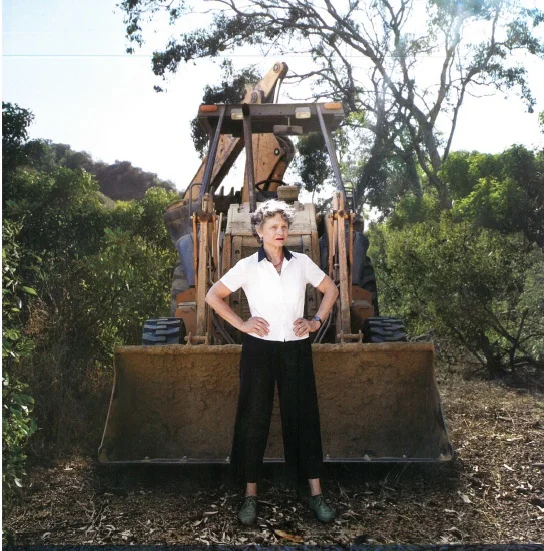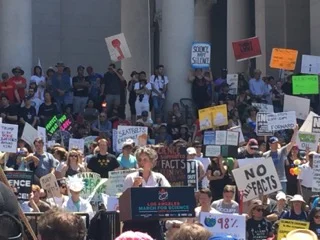The Nation-State and the City
The Nation-State and the City
Stephanie Pincetl
Professor in Residence and Director, California Center for Sustainable Communities
Institute of the Environment and Sustainability
UCLA
Cities concentrate wealth and power; they are now the primary habitat for humans. As the hydrocarbon economy enabled increasing applications of machine power to extract resources and value from the planet, grow more food with less and less people, and transform humans into urban dwellers due to work opportunities, those remaining in rural areas are increasingly marginalized. They are increasingly poor as well. With shifts in population across the globe, partially driven by globalization of economic activity and the search for jobs, cities have also become the home of the ‘other.’
Cities have been, over the centuries, a haven for ‘deviants,’ whether of different religions, of different sexuality or color, or for artists and intellectuals. These outsiders combined with the city’s wealthy and powerful to form the stereotype of the “cosmopolitan elite.” New norms and power relationships that emerged were often perceived as coming at the cost of rural livelihoods, respect and dignity. This perception was encapsulated by Marx’s discussion of the ‘idiocy of rural life’ already in the late nineteenth century, pointing to a sense of isolation, stasis, a lack of cultural and intellectual capital in rural regions. Whether or not this is entirely accurate, as there have been very significant rural political movements and leadership to combat the impacts of mechanization and the degradation of rural labor and life, it is true that rural resentment of the other, of immigrants, of globalization trends, and of change, has fueled a tremendous national political shift toward nationalism and protectionism in the past several decades. The power of these groups result from – at least in the U.S. – a nineteenth century legacy of strong political representation of depopulated areas, bolstered by recent renewed gerrymandering of districts. The tension between the urban and the rural is longstanding, and despite a short reprieve under Keynesianism of regional investments to develop poor rural areas, in the long run the divide has only deepened.
The rise of nationalist and anti-immigrant views is also deeply intertwined with the evolution of global economic activity and power, trade agreements, financial packages or regulations, incentives and taxes, facilitated and negotiated by national governments (see the WTO, NAFTA, banking regulations, oil pipelines and shipping etc. . . ). These have profoundly shaped urban and rural landscapes. However, while wealth and power may be concentrated in cities – the places where the deals are hatched and made – this does not mean that cities themselves are any less constrained by international, national, state and other rules, regulations, and conventions than historically. That is, cities are often creatures of the state, dependent on taxes, incentives and grants from the state or national government, limited in their fiscal autonomy for borrowing or financing, entering into international trade deals, and much more. Further, there is tremendous inequality among cities themselves.
Yet, cities are seen as beacons of hope for reducing greenhouse gas emissions, and restoring planetary health, places of ‘sanctuary,’ tolerance and resistance against nationalist ideologies. The discrepancy between city capacity to effectuate change and expectations about their autonomy to do so, is insufficiently understood and examined. Financialization of real estate that is global in its reach, the spread of extreme inequality and homelessness in nearly all Western cities, are beyond the capacity of cities themselves to address. These trends are not reflections of national or global geopolitical priorities. They are consequences of a global consensus on neoliberal economic strategies that have concentrated wealth into fewer and fewer hands, and created an economy where little reinvestment in the commonwealth takes place. Funds are not available for social needs, nor for remedying environmental degradation, or paying for the true costs of resources, materials, hydrocarbons and their impacts. Investments are not made in education, meaningful work, and creating livable cities. This is not because there is a lack of wealth. It is due to its concentration and the lack of mechanisms to redistribute it for social, environmental and public benefit.
Ultimately struggles around immigration and citizenship within cities or without, and urban development patterns, are outcomes of an income polarized economy that is based on cheap fossil energy, cheap labor, cheap resources and cheap food (J.W. Moore 2015), all of which benefits an increasingly smaller group of people and companies. The construction of economic globalization based on exploitation of people and global resources, in contrast to investment in planetary citizenship and solidarity, has depleted resources and undermined the human spirit especially in rural regions.
While cities today are the concentrates of Earth resources and human populations, they are not of their own making. The major urban areas like New York and London are the facilitators of neo-liberal economic processes as they are the centers of power and money. Other cities live in their shadow and form a cascading scale of competence, resources and livability, each aspiring competitively to rise to the top in a zero-sum game playing field.
Issues of nationalism and anti-economic globalization arise from fear, poverty and lack of hope in a world of urban competition for smaller and smaller prizes. Wealth is concentrated to such an extent that little of it is available to create delightful and welcoming cities, or integrated and hopeful rural places. Nationalism is the outcome despair and depression.





